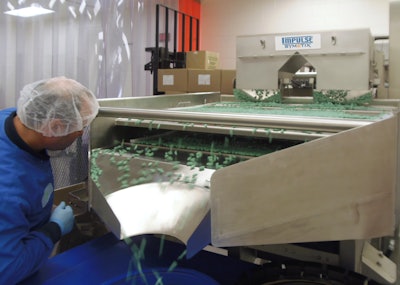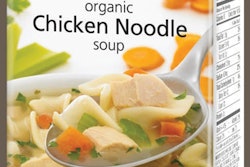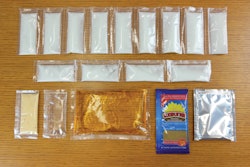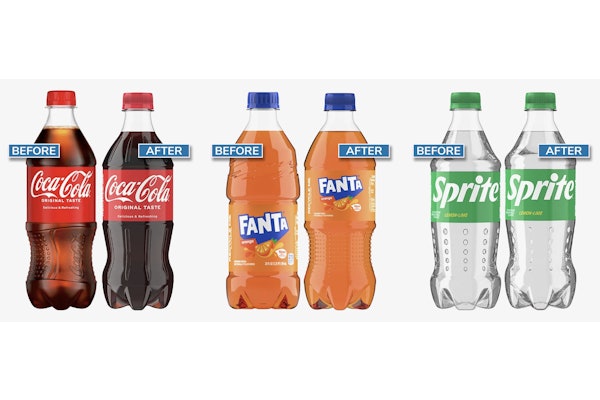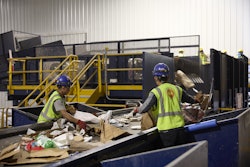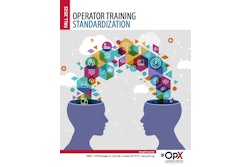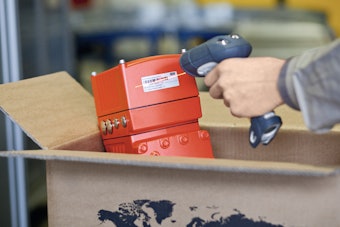Windsor, Ontario, Canada-based Jamieson Laboratories refers to itself as Canada’s oldest and largest manufacturer and distributor of natural vitamins, minerals, concentrated food supplements, herbs.
To help the company provide the highest level of quality, purity, and safety, Jamieson recently installed an Impulse®/P high-capacity vibratory size grader from Symetix®. The Impulse/P automates the removal of broken tablets and fragments just before packaging to improve product quality while reducing labor costs.
“Prior to Impulse/P, we were manually sorting tablets for breakage. We searched for an automated solution that would improve product quality and alleviate unnecessary labor at the same time,” says Andy Holwell, Jamieson’s director of operations. “What used to take a week to manually sort on an inspection belt can now be accomplished in an eight-hour shift, including clean up.”
Designed for solid-dose pharmaceutical and nutraceutical manufacturers and contract packers, the Impulse/P vibratory size grader includes a sanitary stainless-steel bed and removable decks with holes that are perfectly sized for each product. Gentle electromagnetic power is combined with a high-throughput design to mechanically sort softgels and tablets.
Jamieson selected Symetix’s Impulse/P for tablets, a 48-in. (122-cm) wide system that size grades up to 1,000,000 tablets/hr, while their subsidiary, International Nutrient Technologies, installed the 18-in. (46-cm) wide Impulse/P for softgels, which size grades up to 500,000 softgels/hr.
Jamieson’s two-deck tablet system removes broken tablets and fragments, and the three-deck softgel system at International Nutrient Technologies removes twins, clusters, slugs, under-diameter capsules, and over-diameter softgels.
“Our goal was to achieve performance results that matched the sales pitch. Symetix told us that Impulse/P could remove 99 percent of broken tablets and fragments. We’re getting 99.8 percent removal. That level of performance can’t be accomplished with manual inspection, especially at those high speeds,” says Adriana Bodica, process engineer. “The upper deck removes broken tablets and fragments, and the lower deck recovers usable tablets, which helps keep nuisance rejects—the loss of good tablets— to a very low and acceptable volume.”
The decks are removable—each tablet length to be graded has a corresponding set of dedicated decks, which assures repeatable grading. Jamieson has three sets of decks to handle their range of products. “When we were validating Impulse/P, we did dozens of tests back to back to be sure the performance was consistent from one run to another. It is very repeatable,” notes Bodica.
Compared to a traditional diverging roller size grader, which introduces subjectivity because it needs to be adjusted by the operator, Impulse/P is repeatable and easy to operate. It’s also easy to clean and fast to change over. An operator simply wipes down the stainless-steel bed, snaps the decks that handle the new tablet size in place, and begins production. “We have a roller grader elsewhere in the plant. By comparison, the Impulse/P is very gentle, and it can be changed over in about half the time,” says Holwell.
Impulse/P features no sliding or rotating parts to wear. The oil-free electromagnetic drive is quiet and has no moving parts. In addition to gentle handling and high throughput, Impulse/P offers long service life and low maintenance. “Any time we can eliminate lubricants, it’s one less thing we have to check, and it’s better for the environment,” says Holwell. “We’ve had no maintenance issues with the Impulse/P. There is nothing to maintain, really.”
With its large infeed hopper and an electronically controlled infeed gate, Impulse/P can be easily integrated with upstream and/or downstream equipment or used as a standalone size grader handling batches. Jamieson uses its Impulse/P as a standalone unit. Producing almost three billion capsules and tablets per year on their 13 tablet presses that run 24 hr/ day, five days/wk, Jamieson’s operators assess product coming off the presses for breakage and either run the product through Impulse/P or not, prior to tablet coating and/or packaging.
Of the 250 products that Jamieson produces, several dozen are prone to breakage and typically run through the Impulse/P. “For each product, we set up the parameters and store them in the system’s memory. Those parameters include how wide the gate opens and for how long, which regulates the product flow, because some products need to run a little slower than others,” says Bodica. Impulse/P features a touchscreen control panel with an intuitive user interface. “It’s very simple to operate.”
“In the nutraceutical industry, the quality bar is constantly rising, and we are ahead of this curve because we voluntarily follow pharmaceutical manufacturing guidelines, which are higher than nutraceutical guidelines,” notes Holwell.
“We measure the success of Impulse/P based on its ability to sort out broken tablets and fragments. Equipment uptime also matters, but product quality trumps every other consideration,” concludes Holwell. “Impulse/P does a better job removing broken tablets and fragments than manual inspection. We’ve removed the human-error factor, and done so while reducing costs.”
